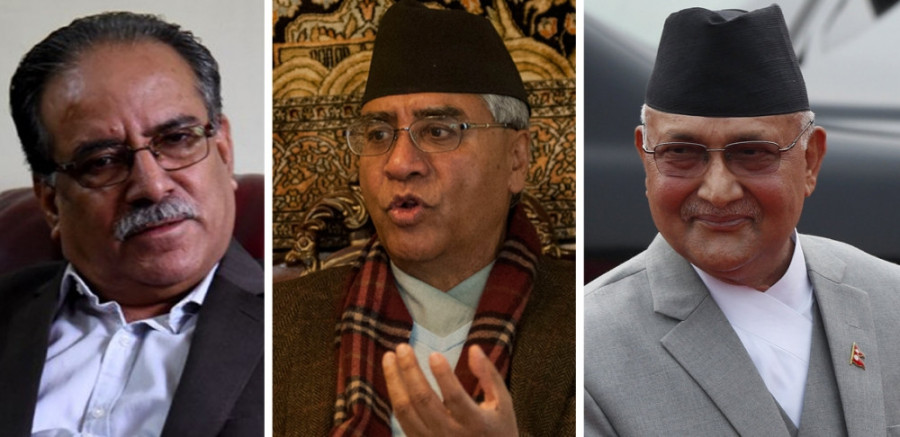Editorial
Old ways of old parties
A large section of society is fed up with the same-old faces in leadership for decades.
Leaders from major political forces seem alarmed by some new tendencies seen in their members and by the responses they have received from the new generation in the society. The traditional parties have failed even to renew membership of their existing cadres, let alone attract new youths to their organisations. The CPN-UML, the second-largest party in the Parliament, which completed its grassroots campaign only a few months ago, has been taken aback by the response it got from the grassroots.
The party’s central secretariat meeting on Saturday decided to extend the deadline to renew party membership by 15 days until July 31 as almost half of the members didn’t show any interest in renewing their association even as the deadline expired on Sunday. The leaders knew it was coming. Presenting his political paper in the party central committee meeting in May, UML Chairman KP Sharma Oli termed the party’s latest status “a worry”. In his paper, he also analysed the results of the bypolls conducted in Tanahun, Chitwan and Bara and said they were a “serious matter” for the party. Earlier in April, Oli, while addressing a gathering in Jhapa, said his party was coming to resemble a hippopotamus: a huge organisation without any dynamism or vigour. The largest communist party is considered to be the country’s most-organised cadre-based organisation. But recent trends have made UML leaders in Kathmandu restless.
The condition of the Nepali Congress, the largest party, is no better. Some of its departments and wings are virtually defunct. The recent restlessness and struggles of the party’s two general secretaries—Gagan Thapa and Bishwa Prakash Sharma—speak volumes. A group of youth leaders launched a ‘Nepali Congress Rupantaran Abhiyan’ (transformation campaign) last month out of the same apprehension. Meanwhile, another traditional force Rastriya Prajatantra Party has come up with the concept of ‘Navin RPP’ in a bid to attract youths to the pro-monarchy party. All these activities show the traditional forces feel tremendous pressure and are desperate to retain their social influence.
But despite this desperation, the leaders are not ready to address some fundamental problems that have plagued their parties. The party chiefs are not ready to relinquish power and hand over leadership to new leaders, even as a large section of the society is fed up by seeing the same-old faces in the leadership for decades. The new generation doesn’t feel any connection with them. The top decision making committees have become eco-chambers for years as no critical members are allowed into the elite clubs. Instead, the UML recently took a regressive decision to remove the 70-year age bar for the holders of executive positions in the party.
Again, top leaders appear to be completely oblivious to the concerns of the new generation. They are bereft of new ideas as the entry of new members and ideas has been virtually barred in their decision-making bodies. The parties and the governments they lead have failed to create jobs, promote entrepreneurship and guarantee good education and health. They seem to be clueless about solutions to these pressing problems even as they have been ruling the country for decades. If the traditional forces want to keep themselves relevant, the leaders must see the writing on the wall—or perish.




 18.12°C Kathmandu
18.12°C Kathmandu














